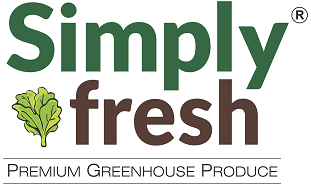FMC Corporation launches ’Arc™ Farm Intelligence Platform’
It is the first mobile platform to use predictive modeling based on real-time data.
FMC Corporation (NYSE: FMC) recently announced the launch of Arc™ farm intelligence, an exclusive precision agriculture platform that enables growers and advisors to more accurately predict pest pressure before it becomes a problem. Arc™ farm intelligence is the first mobile platform to use predictive modeling based on real-time data to help ensure the right crop protection products are applied precisely where and when they are needed to improve sustainability, optimize crop yield and enhance grower return on investment (ROI).
“Farmers rely on data and information every day to make critical decisions about protecting their crops from destructive insects, disease and weeds,” said Mark Douglas, president and CEO-elect of FMC. “Arc™ farm intelligence raises the game in predictive modeling and analytics, enabling our team to provide advisors and growers with crop protection advice and insights faster, easier and in a smarter way. Delivering better information to growers increases sustainability, adds value, strengthens relationships and promotes more business opportunities.”
The innovative platform offers a full suite of features, including customized alerts through a mobile app to indicate when action is needed in a field, two-way communication with FMC agronomists, reliable data and high-quality graphics, including graphs and heat maps. Arc™ farm intelligence has been engineered with open APIs and can easily be plugged into growers’ existing digital ecosystems.
“Our first offering under the Arc™ farm intelligence platform utilizes aggregated historical data, entomological models, hyper-local weather data, and real-time regional pest mapping to increase a grower’s confidence when making insect management decisions,” said Sara Sterling, director of Precision Agriculture at FMC. “Powered by advanced scouting and machine learning, this tool predicts insect pressure one week in advance with more than 90 percent confidence for key insects in select crops. Feedback has been overwhelmingly positive in Brazil and Greece, where it has been used on cotton, and we look forward to introducing Arc™ farm intelligence in additional countries and crops.”
The platform will be launched commercially next week in Greece for cotton, and it is being piloted in other countries, including Brazil, Spain and the United States, on a broad range of crops from brassicas to corn to lettuce. The Arc™ farm intelligence app will be available for growers in Greece for free from the Android and iOS app stores.
Arc™ farm intelligence is the latest addition to FMC’s Precision Agriculture solutions, which are designed to ensure the right crop protection products are applied exactly where and when they are needed to increase sustainability, as well as optimize yield quality and quantity and improve ROI. Other FMC Precision Agriculture solutions include 3RIVE 3D® application technology, a revolutionary at-plant crop protection delivery system that helps growers efficiently cover more ground in less time with fewer refills – saving water, fuel, labor and time; and PrecisionPac® solutions, an innovative dispensing system that minimizes waste with custom herbicide blends specific to each grower’s field size and weed spectrum.
It is the first mobile platform














